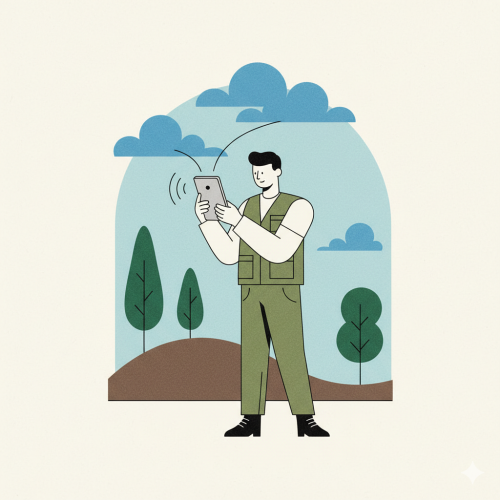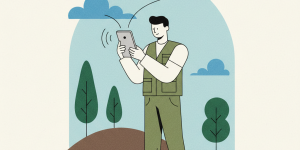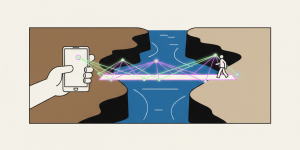Strengthening Safety and Rapid Decision-Making in Jordan
Lessons and recommendations from the Jordan INGO Forum (JIF) Workshop
In July 2025, WillowFlow delivered a Strengthening Safety and Rapid Decision-Making Workshop for the Jordan INGO Forum (JIF) in Amman. The request came at short notice and required a rapid response during a period of heightened regional tension, when missile activity in the region had spillover effects on Jordanian territory. Within days, JIF mobilised its members for a one-day workshop that addressed both immediate and longer-term needs.
Workshop overview
Twenty-eight participants from twenty-two organisations attended, reflecting strong engagement across JIF’s membership. The day opened with an analysis of Jordan’s evolving risk landscape and new emergency directives from the Public Security Directorate (PSD), Jordan’s national civil protection authority. This was followed by a discussion of regional dynamics and their implications for operational safety and continuity.
Participants then worked in small groups to map exposure and vulnerability across different roles and operational contexts, from field teams to national offices.
The core of the day centred on two practical scenario simulations:
- A missile strike near a humanitarian camp.
- Civil unrest in Amman resulting in movement restrictions and curfews.
Facilitators guided participants through each stage of decision-making, communication, and coordination, using real examples to test assumptions and strengthen readiness. Later sessions explored the adaptation of standard operating procedures (SOPs) and checklists for specific field realities, followed by peer exchanges on what is already working across organisations.
The day concluded with a forward-looking discussion on sustaining team preparedness, embedding risk conversations into daily routines, and identifying follow-up needs for member organisations.
Key findings
The workshop confirmed a strong level of commitment among JIF members to improve operational readiness in the face of regional uncertainty. Feedback was consistently positive: more than ninety per cent of participants said they would recommend the training and valued its bilingual delivery and practical design.
Participants particularly appreciated the realism of the scenarios, the space for open exchange, and the chance to align their own internal processes with sector good practice. Areas identified for continued improvement included:
- Clearer internal crisis communication roles and responsibilities.
- More adaptable and harmonised SOPs.
- Stronger partner due diligence and vetting mechanisms.
- Continued technical refreshers and role-specific exercises.
While most organisations already have safety procedures, confidence in applying them under pressure varied. Structured decision-support tools and clearly defined leadership roles were identified as key areas for development.
On further review
Drawing on workshop feedback, WillowFlow identified several broader lessons that extend beyond this single event. These reflections highlight what the sector as a whole may wish to strengthen in the months ahead.
- From policy to practice. Many organisations have well-written duty of care and crisis response policies, but they often remain theoretical. Moving from policy to practice means giving staff clear authority, accessible tools, and the confidence to act. Short, usable reference materials such as response cards, decision flowcharts, or call trees help ensure that policies are applied in real time and under pressure.
- Partner and third-party risk management. Risk management should be proportionate, transparent, and inclusive. Proportionate means assessing partners based on actual exposure rather than standard templates. Transparent means setting clear and fair expectations. Inclusive means involving partners directly in the design of risk processes, building shared responsibility rather than one-way oversight.
- Crisis leadership and rehearsal. Plans are valuable only when tested. In sectors such as aviation, healthcare, and energy, rehearsal is a normal professional practice because the cost of error is high. The same principle should apply to humanitarian and development operations. Short simulation exercises, built into quarterly reviews, team meetings, or induction sessions, build confidence, sharpen decision-making, and make procedures instinctive.
- Contextual analysis and scenario planning. These processes should be living management tools, not static documents. Regularly updated analysis allows organisations to anticipate disruptions, adapt programme design, and engage donors with credible, evidence-based reasoning. Scenario planning can also inform partner selection and strengthen funding proposals by showing foresight and preparedness.
- Psychological resilience and staff welfare. The sector increasingly recognises the importance of mental health and staff well-being. This must now move from discussion to structured practice. Staff welfare is both a duty of care and a duty of capacity. It is essential for sustaining operations and fulfilling humanitarian and development missions. Embedding psychosocial support and reflective supervision into organisational systems should now be standard, not an afterthought.
Throughout the workshop, it was clear that much of this insight already existed within participant teams. The session provided a space to surface that knowledge, align perspectives, and identify realistic, shared next steps.
Collaboration and delivery
The event demonstrated what can be achieved through coordination and commitment. JIF acted quickly to convene its members, and their active participation turned a short-notice event into a productive and forward-looking exchange.
WillowFlow’s facilitators provided structure, tools, and an open space for reflection, allowing participants to connect their operational experience with tested frameworks for decision-making and preparedness.
How WillowFlow works
WillowFlow reflects a reflexive, balanced, and grounded approach to technical delivery. We do not rely on a “fly-in, fly-out” model, though we recognise there are situations where such deployment is the only feasible option. In those cases, WillowFlow draws on strong networks already established on the ground to ensure continuity, relevance, and contextual understanding.
We do not believe that there are any countries without credible expertise and lived experience. Our starting point is always to identify the best expertise already in-country—people and experts with a deep understanding of their operational realities and the credibility that comes from direct experience.
The facilitators for this workshop reflected that approach. One brought more than 25 years of international experience working across humanitarian and development contexts, understanding the perspectives of both international and national organisations and the broad operating realities of JIF members. The other had a long professional background in public security, together with experience in United Nations missions and international humanitarian programming in Jordan. This blend delivered a facilitation model that was highly appropriate to JIF’s needs and context.
Many of WillowFlow’s specialists are members of the WillowFlow Cohort, our talent pool that connects technical experts across humanitarian, development, and peacebuilding sectors. The Cohort provides a platform for collaboration, shared learning, and deployment across multiple technical fields.
If you would like to know more about the Cohort or explore joining it, please contact ann@willowflow.group or luna@willowflow.group.
This approach ensures that WillowFlow’s support remains innovative, practical, and in touch with local reality, rooted in the belief that effective delivery depends on contextual credibility, not geography.
WillowFlow’s wider offer
WillowFlow is a technical consultancy working across a wide range of themes in the global impact sector. Our portfolio includes:
- Safety, access, and risk management.
- Humanitarian access and negotiation.
- Programme design, evaluation, and learning.
- Protection, gender, and inclusion.
- Social protection, livelihoods, and financial inclusion.
- Food security, health, and water and sanitation.
- Governance, leadership, and organisational resilience.
- Digital and data-driven analysis for decision-making.
Our work connects these areas through a shared focus on operational realism, ethical delivery, and measurable impact.
WillowFlow in Jordan
WillowFlow continues to support organisations in Jordan and across the wider region, providing tailored technical consultancy, capacity strengthening, and programme analysis that reflect both local realities and regional dynamics.
For further information or to discuss specific requirements on safety, security, and access, please contact peter@willowflow.group.
For technical consultancy needs, including humanitarian, development, climate, protection, human rights, climate and environmental programming, please contact imogen@willowflow.group.
For general enquiries, please contact hai@willowflow.group.






